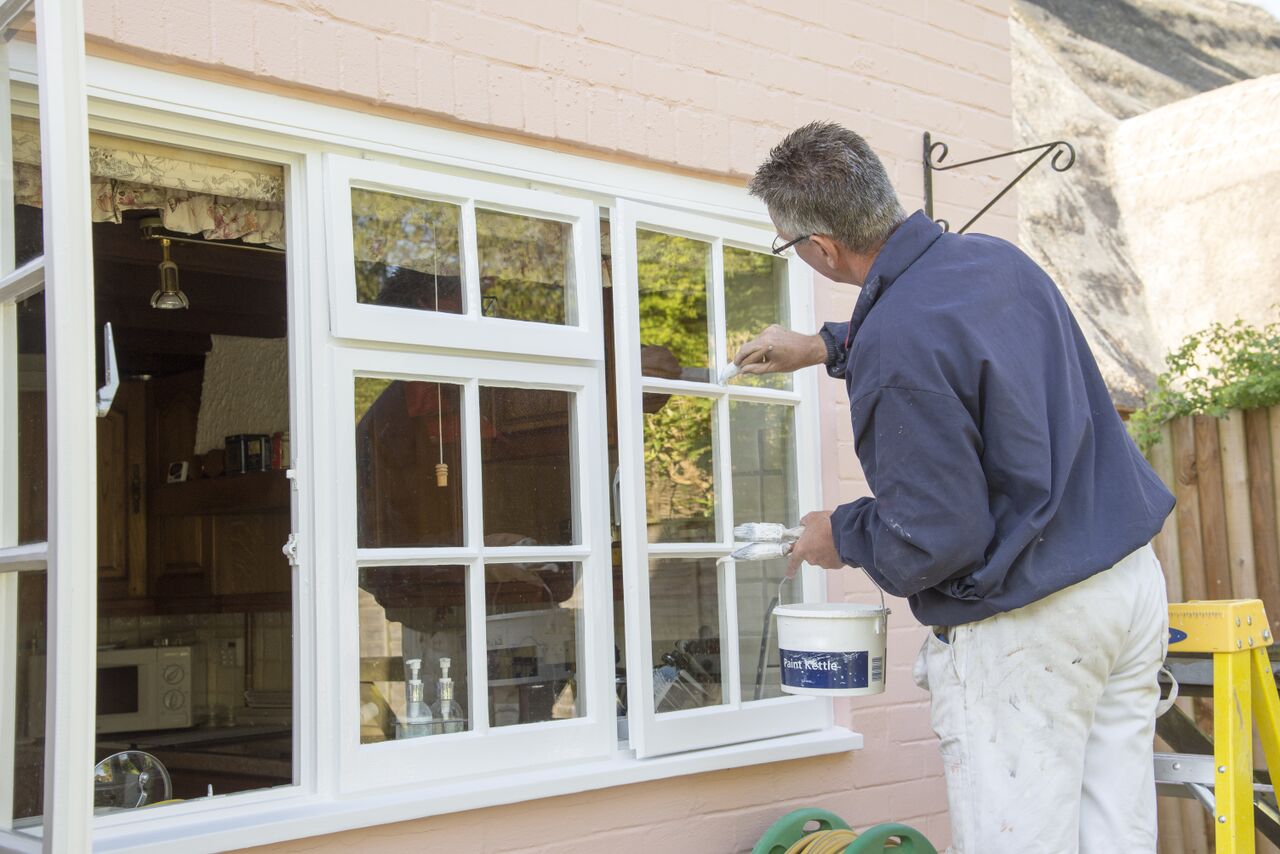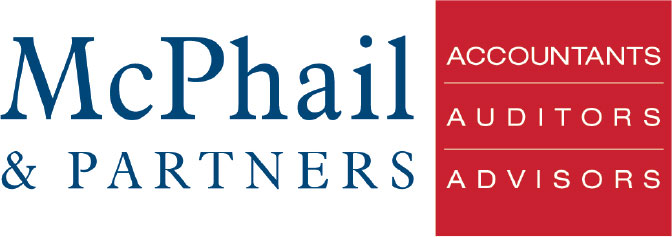5 Things Your Adult Child Needs But Doesn't Have
If you are a fellow parent you know how it feels when you see your kids leave home, move to a different country, get married etc. But, do you know it could be worse if you sent that son or daughter off without doing 5 critical yet pretty simple things for them? The good news is that it is not too late to get these done for your adult child whether or not they are close to home!
Below are five things we believe are important topics to discuss right now with your children.
- Take care of a Will. Most of us need Wills but your adult child may not. Most of these children own things like phones, stereos and computers and none of those need a Will to direct it to the appropriate heir in the event of a death. However, many of these children have a car and a bank account and it’s these sorts of items that need a Will to protect them.
- Prepare for health issues. Make sure you are having the right conversations with your adult children so that you know they are having regular health checks and that they inform you of any health issues they may have. The last thing you want when you are about you plunge into retirement is cancelling your cruise because you have to look after the grand children!
- Prepare for financial issues. In the hypothetical example of a nightmare car accident, disability is a higher possibility than death. A Power of Attorney enables a designated person to handle affairs that cannot be handled by the child. This can include financial, tax, banking and individual care matters. Having this on file before it is needed can help alleviate needless delays and heartache in the future.
- Decide about life support. This one is not fun for any of us. Have the open discussion that in the worst event one of you, them or you, needs life support, what are your desires? And, would you like to donate your organs?
- Cover the bills. Your adult child may be racking up some small debts as they work their way through university and the start of adulthood. While they may not think it’s needed, a conversation about life insurance can be a valuable one to have.
The bottom line is that our duties as parents don’t stop when our kids reach 18; however, our ability to be a parent is greatly diminished based on the fact that those kids are now adults.
Take the time to talk to your children about these important topics and prepare for any situation. The devil is certainly in the detail.
Have you talked to your grown kids today? Why not take a minute and call right now?
Tax News, Views & Clues - March 2016
Tax relief for small businesses that restructure on the way Small businesses are important to the Australian economy, as they facilitate growth and innovation. However, as a small business develops over time, its initial legal structure may no longer be suitable for the business. Where a business has to restructure to accommodate growth, the transfer of assets from one legal structure to another could give rise to unwanted tax liabilities, even though the underlying economic ownership remains the same.
With this in mind, the Government has proposed amendments to the law to provide tax relief for small businesses that restructure on a genuine basis. If the legislative amendments are enacted as proposed, the changes would apply for restructures occurring on or after 1 July 2016. In introducing the Bill, the Assistant Treasurer said that this legislation completes the Government’s $5.5 billion Growing Jobs and Small Business package. Ms. O’Dwyer said the Bill will reduce risk and complexity, and will make it easier for businesses to grow.
Trusts’ ABNs to be cancelled if no longer carrying on business
The ATO has advised that the Registrar of the Australian Business Register (ABR) will begin cancelling the Australian Business Numbers (ABNs) of approximately 220,000 trusts, where there is evidence they are no longer carrying on an enterprise.
A trust’s ABN will be cancelled where available information indicates that the trust has not lodged business activity statements and/or trust income tax returns for the last two years. Exclusions to these ABN
cancellations apply for trusts that are registered with the Australian Charities and Not-for-profits Commission (ACNC) or are non-reporting members of a GST or income tax group.
The ATO said entities will receive a letter if their ABNs had been cancelled. This letter will include the reason for the cancellation, and a phone number to ring to have the ABN reinstated immediately if the entity does not agree with the decision.
Withholding tax for car allowances
Car expense deductions for individuals were simplified from 1 July 2015. Employers who pay their employees a car allowance need to withhold tax on the amount they pay over 66c per kilometre. If employers have not been doing this, the ATO notes they should start now to avoid their employees having a tax debt.
TIP: Employers should consider having a discussion with affected employees about whether to increase the withholding amount for the remainder of the financial year to cover the shortfall. If you have any questions, please contact our office.
Travelers with student debts need to update contact details
Australians with a Higher Education Loan Programme (HELP) debt and/or a Trade Support Loans (TSL) debt who are moving overseas for longer than six months will need to provide the ATO with their overseas contact details within seven days of leaving the country. International contact details can be provided to the ATO using its online services (eg an ATO account linked to myGov).
From the 2016–2017 income year, anyone who has a HELP or TSL debt and earns above the minimum repayment threshold will be required to make repayments regardless of where they live.
TIP Students’ debt will be indexed each year until it is paid off. You can make additional voluntary repayments at any time, including from overseas, to reduce the balance of your debt.
Small business tax concession refused as threshold as threshold test failed
The small business capital gains tax (CGT) concessions contained in the tax law allow eligible small businesses to access tax concessions on capital gains made from the sale of certain CGT assets.
There are threshold tests for accessing the concessions outlined in the tax law. Importantly, the taxpayer must be a small business entity, or a partner in a partnership that is a small business entity, or the taxpayer’s net assets, together with certain associated entities’, must not exceed $6 million. This is the Maximum Net Asset Value (MNAV) test.
A recent case before the Federal Court examined whether a taxpayer was entitled to the tax concessions. In particular, the Court looked at whether the taxpayer had correctly excluded a debt (a pre-1998 loan) from the MNAV test calculation. The taxpayer had not included the pre-1998 loan on the basis that it had no value, being “statute-barred” under the relevant state legislation, in this instance the Limitation of Actions Act 1936 (SA).
However, the Court dismissed the taxpayer’s appeal. The Court confirmed that the pre-1998 loan could not be regarded as having no value, and that the loan amount of $1.1 million should be included in the MNAV test calculation. The inclusion of the amount meant that the sum of the net values of the relevant CGT assets exceeded the $6 million MNAV threshold. As a result, the small business CGT concessions were not available to the taxpayer.
TIP: This case highlights the importance of satisfying the basic conditions to access the small business CGT concessions, in particular when an asset originally excluded from the MNAV test is subsequently included in the test calculation and results in the breach of the MNAV threshold.
‘Wildly excessive’ tax deduction claims refused
A professional sales commission agent has been largely unsuccessful before the Administrative Appeals Tribunal (AAT) in claiming tax deductions for work-
related expenses, including home office expenses, various grocery items and overtime meal allowances.
The case concerned the taxpayer’s deduction claims in his 2011 and 2012 tax returns. The taxpayer worked as a professional sales commission agent and his employer did not provide him with a dedicated office or workspace. His original claims (which changed throughout the course of the AAT proceeding) totalled over $63,000 for 2010–2011 and over $53,000 for 2011–12, representing at least 30% of his employment income. During the proceedings, the taxpayer abandoned a claim for a $5,388 payment to his seven-year-old son for his “secretarial assistance”.
The AAT found that the taxpayer’s home office claims were “wildly excessive”, and that the taxpayer and his representatives failed to critically analyse how these claims helped produce the taxpayer’s assessable income. The AAT rejected everything claimed under “staff and client amenities”, as it considered the products were overwhelmingly consumed by the taxpayer’s family, making the claims “outrageous and utterly unacceptable”. The claimed meal allowances were also rejected in their entirety. However, the AAT did not disturb heating and lighting expenses allowed by the Commissioner.
GST credits not available for payments on behalf of super funds
The ATO has issued GST Determination GSTD 2016/1, which provides the Commissioner’s view on whether employers can claim input tax credits for expenses paid on behalf of superannuation funds.
The Determination notes that employers may pay expenses on behalf of superannuation funds for administrative convenience. It provides that an employer is not entitled to an input tax credit if a superannuation fund makes an acquisition and the employer pays the expense on the fund’s behalf
(eg the super fund obtains legal advice but the employer pays the legal adviser). This is because the advice is supplied to the fund and not to the employer. However, the Determination notes that the fund may be entitled to claim a reduced input tax credit under the financial supply rules (contained in the GST Act), provided the requirements of those rules are satisfied.
IMPORTANT: Clients should not act solely on the basis of the material contained in Client Alert. Items herein are general comments only and do not constitute or convey advice per se. Also changes in legislation may occur quickly. We therefore recommend that our formal advice be sought before acting in any of the areas. Client Alert is issued as a helpful guide to clients and for their private information. Therefore, it should be regarded as confidential and not be made available to any person without our prior approval.
Employee of the month

Meet our employee of the month! Rebecca Pratt is the assistant to our directors, Brian and Wayne, and this month we sat down with her to answer a few questions…
What’s one thing about you that your work colleagues don’t know about?
I can speak, write and read Hungarian.
How would you describe McPhails?
McPhails is a great place to work. The team is friendly and has a family feel with lots of laughs.
What is your role at McPhails?
My role is Assistant to Directors - to help aid the growth of the business.
Who is your boss and what are they like to work for?
I work for both of the Partners, Brian McPhail and Wayne Durdin. They have different personalities and it’s great as they both have strengths in different areas of the business. I hold them accountable and sometimes give them a bit of a prod to get things done.
McPhails employees never leave! What do people like about working at McPhails?
I think the team environment and everyone is willing to help each other out is what people like the most.
What was your nickname at school and why?
Becsta- nothing specific but relates to my name Rebecca
If you were given $200 [yes for no reason!] what would you do with it and why?
Shopping of course! Shoes, shoes and more shoes. Call me Imelda Marcos lol
Favourite holiday destination as a child?
Queensland because of the theme parks and beaches
If you could have any job in the world, what would it be?
Criminal Profiler
15 qualities of smart business people

What exactly is "smart"? Being smart is more than having a high IQ. It has been proven time and again that IQ is fixed. The way we learn at 15 is the same way we learn at 50. To be smart one has to bring more to the table than intelligence alone. At the core of smart people is an acute and ever expanding self-awareness. Smart people tend to be quick and prompt, mentally ready, shrewd, clever, effective, neat or trim in their appearance, socially elegant, sophisticated, current and charismatic. Smart is the sum total of many character traits expressing itself globally through a person’s impact on their world.
1. Intuitive
Smart people do not just rely on facts, they listen to and follow their intuition. They are aware of when and how their intuitions and insights come to them. They are internally tuned-in to make wise decisions. Smart people are able to clearly see the reasons and motivations of other people. Because of this, they can selectively choose when, what and with whom to align themselves. They use their intuition in decision making, to chart new paths and in being diligent in surrounding themselves with only the highest quality people, programs and customers.
2. Conscious
Smart people know who they are and are conscious of their emotional and behavioral tendencies across situations. They know their strengths, weaknesses, personality traits, values, morals and beliefs. Smart people are wise to others but know that self-awareness is the ticket to their personal enlightenment and business advancement. They show the deepest commitment to themselves and to their own development. They are keen in knowing that the more conscious they are of themselves, the better they are able to know and predict others.
3. Reflective
Smart people look back on, and learn from, experiences. They do not get stuck in the past but know they must look in the review mirror to properly navigate the front window. As they look back they take inventory on what they can learn from their experiences. They either perfect and repeat past efforts or abolish strategies that clearly did not work. They take the time to think about decisions before jumping in, and afterward, actively reflect to gain deeper insight into what worked and what didn’t.
4. Creative
Smart people are never satisfied with one level of advancement of their product, themselves or their business. They are drawn to new ideas, radical thoughts and innovative ways of changing and doing things. Smart people desire to chart new paths and crave progressive thinking, concepts and people. Their natural thought process is out-of-the-box. Stepping outside their comfort zone is something they see as imperative to their success.
5. Open-minded
Smart people welcome different perspectives and see opportunities where most do not. They see the mind as a parachute -- it works best when open. Smart people are comfortable in paradoxical situations and have a passion for problem solving and fixing things in new and inventive ways. They are willing to listen to different points of view on how to strategize in problem solving situations. They let go of having things be their way when they come across more effective solutions.
6. Timely
Smart people recognize and respond immediately to opportunities and people. They act and react quickly, taking care of what needs to be done well ahead of schedule. Procrastination is not their habit, as losing opportunities is not an option. All opportunities, along with mutually respectful relationships, develop from promptness and dependability.
7. Resourceful
Smart people know where to get whatever information, resources, supplies, training and education they need when they need it. They have copious resources. They are well-networked and have many people to call on for referrals. This type of resourcefulness makes them successful as they are never short of ways to get to their goals
8. Independent
Smart people habitually question authority. They do not blindly accept what so-call experts preach. They ask deeper questions others do not so as to discover their own truths. It is only through the discovery of their own truths that they can validate implementing new strategies.
9. Lifelong learners
Smart people use their minds to the fullest. They are consummate learners. They are not lazy in their thinking and see the discovery of all new information as upgrades to their skills, knowledge, cutting edge information, attitudes and beliefs. Smart people crave and gather the collective brain power of others by reading books, magazines and articles that assist their own development. Learning is never a drag or a bore because for smart people learning is intrinsically rewarding.
10. Lighthearted
Smart people do not take life or themselves too seriously. They have a sense of humor about things and recognize the importance of finding the joy in the irony and comedy of everyday life. Smart people find blessings in the bummers, silver linings in challenges and solutions in the problems. It is through this that they continue to be successful and personally satisfied in life.
11. Explorers
Smart people are willing to try new things, knowing that if what they try at first doesn’t work out as they had hoped, it is no harm, no foul. They accept their failures as cleverly disguised learning opportunities. They take risks often. They are curious and adventurous in their business pursuits. They are willing to leap in to the unknown. Their risks usually pay off.
12. Believe in themselves
Smart people, knowing who they are, believe and trust in themselves first foremost. They do not need the validation of others to make decisions. They instinctively know what is right for them and they go after it. They do not want or wait for change. Being in the holding patterns of waiting or wanting doesn’t fit their style. They take action and create change. They know the only person they can count on completely is themselves.
13. Write goals on paper
Smart people have well-developed life strategies that include writing of goals, visions, desires and dreams they want to achieve. They tend to be avid journalers, list makers and dreamers. Writing is their first step in making their dreams a reality.
14. Pay it forward
Smart people are the generously give success, knowledge and information to others. They are teachers, guides, mentors and helpers. They put themselves out here so the rest of us can benefit. Smart people share. They uplift and make others better. In exchange, their own learning grows and develops because they are actively talking about, researching, understanding and expanding their own field of knowledge.
15. Reinvent themselves
Smart people abhor status quo and cannot stand being stagnated. They crave growth and development and are willing to shift their image, brand, logo, company name or change their direction entirely if necessary. To stay current or ahead of the game. They know exactly with whom to collaborate and are known to reinvent themselves over and over again.
Smart people are always adding to their knowledge and network base, while at the same time removing relationships, customers or strategies that no longer serve them. Experience, intelligence, class, wisdom and self-awareness are what set the smart apart from the average.
http://www.entrepreneur.com/article/252178
ATO property data-matching programme & implications

The scale of the ATO’s property data-matching program announced on 15 December 2015 is breathtaking!
Under the data-matching program the ATO intends to obtain data from various State Revenue offices and tenancies boards for the period 20 September 1985 to 30 June 2017 (ie from the start of the regime until 2 years from now!!). It will include such information as the rental bond number or identifier, the full name and address of the landlord and the period of lease, as well as the date of any contract of property sale and relevant valuation details. Further, the ATO expects that around 31 million records for each year will be obtained and that records relating to 11.3 million individuals will be matched.
And for those taxpayers who have failed to return capital gains from property transactions, the consequences could be quite dramatic – even for those who may have unwittingly failed to do so in view of the apparent complexity of the relevant CGT rules. However, the more interesting issue is the fact that where a taxpayer makes a choice to apply any one of the myriad of CGT concessions which enable them to negate in whole or part a CGT liability on a property, and particularly a main residence, this choice is merely reflected in the way the taxpayer lodges their return for the relevant year.
This in turn may mean that if the ATO comes knocking in respect of any undeclared property gain, a taxpayer may well be able to raise the “defence” that one of these concessions was in fact chosen to justify the non-return of the gain regardless of the taxpayer’s real intention at the time. Alternatively, it may be possible for a taxpayer to seek an amendment of a return to apply or “undo” any such choice to their benefit.
Source- Thomson Reuter’s Weekly Tax Bulletin
New Travel Destinations for 2016

Hardcore ABBA fans, football fanatics and Disney devotees will all find a persuasive reason to dust off their passports in the near future – and outdoorsy types, art lovers and adventurous foodies won’t be disappointed either. Be one of the first to see these brand new attractions, all slated to throw open their doors in 2016.
Shanghai Disney Resort, China
Slated to open in spring 2016, Disney’s newest resort – and its first in mainland China – will feature a traditional Magic Kingdom park complete with the largest-yet Enchanted Storybook Castle. Rides and attractions will be scattered around six themed lands, including the pirate-themed Treasure Cove with the high-tech Pirates of the Caribbean: Battle of the Sunken Treasure ride. The Garden of the Twelve Friends at the park’s centre will contain murals of the 12 animals of the Chinese zodiac depicted as Disney characters.
Just outside the Magic Kingdom, the Disneytown entertainment district will have restaurants, shopping and nightlife, including a theatre showing a Mandarin-language version of The Lion King. Two hotels, the Art Nouveau-style Shanghai Disneyland Hotel and the Toy Story Hotel, will accommodate guests in the park (shanghaidisneyresort.com.cn/en/).

Mamma Mia! The Party, Stockholm, Sweden
Take one part restaurant, one part performance, a generous splash of disco, a touch of audience participation and what do you get? A new Mamma Mia!–themed restaurant (mammamiatheparty.com), slated to open in Stockholm’s Gröna Lund amusement park in January 2016. ABBA legend Björn Ulvaeus is behind the new interactive disco-dining experience, a Greek-style taverna where diners tuck into souvlaki while a story unfolds around them. With the chance to take part in the show, and to sing and dance to the hits featured in the world-famous musical, it’s set to be a delicious feast of ABBA fun.
Monnaie de Paris, France
Mid-2016 sees the French capital’s mint (monnaiedeparis.fr) reach the completion of its ‘MetaLmorphoses’ project – a multiphased transformation of its monumental 1.2-hectare site on the Seine’s Left Bank.
Following 2014’s contemporary art exhibitions in the mint’s sumptuous neoclassical building and the 2015 arrival of triple-Michelin-starred chef Guy Savoy’s flagship restaurant, 2016 will unveil the Monnaie de Paris’ previously unseen collections. Along with these will be metalwork and foundry workshop tours, boutiques, Guy Savoy’s MetaLcafé brasserie, and interior streets and a park overlooked by a restored 1690 town house built by Jules Hardouin Mansart, publicly viewable for the first time.

FIFA World Football Museum, Zurich, Switzerland
Zurich is upping its game as it braces itself to welcome the new FIFA World Football Museum, slated to open in spring 2016 and costing a cool Sfr180 million. It’s the moment footie fans have been waiting for with bated breath. Bang in the heart of the city, the 3500-sq-metre whopper of a museum will whisk fans through the history of the game, with a timeline, hall of fame and cinema; recreate stadium fever with a giant football pinball machine; and harbour the world’s biggest collection of football books. Huddled away in the basement is the museum’s very own Mona Lisa: the World Cup Trophy itself.
Surf Snowdonia, Wales
The magical mountains and valleys of Snowdonia are a great place for walkers and adventure sports fans. The natural landscape is increasingly being augmented by impressive manmade facilities – Snowdonia now boasts Europe’s longest zip line and a vast underground trampolining centre. But its most radical attraction will have been freshly opened come 2016: a £12 million, 300m-long artificial surf lagoon that uses local rainwater to produce a consistent, barreling 2m wave every sixty seconds. It’s a world first, and one that doesn’t just appeal to the hardcore – the wave’s size varies in different parts of the lagoon, and its consistency helps beginners. Surf kayaking, stand up paddle boarding and blobbing are also on offer (surfsnowdonia.co.uk).

National Gallery Singapore
Singapore boasts several world-class museums, but if you only have time to see one in 2016, make it the National Gallery Singapore. Occupying two of central Singapore’s most historical buildings – the former City Hall and Supreme Court – the enormous gallery space, unveiled during the city-state’s 50th birthday celebrations in November 2015, will showcase Southeast Asian art from the 19th century to the present day. After admiring the thousand-odd artworks in the painstakingly restored colonial courtrooms and council chambers, don’t miss the fifth-floor rooftop garden with its superb views across the Padang towards Marina Bay.
BASK, Gili Meno, Indonesia
You might think you’d be more likely to bump into David Hasselhoff at a German karaoke bar, but if you’re headed to Indonesia you might just see him by the pool. For The Hoff is the face of BASK (baskgilimeno.com), a luxury villa-resort development currently under construction on Gili Meno, near Bali. Situated on a private white-sand beach, BASK will boast a world-class restaurant, chic beach club, state-of-the-art spa and its very own underwater sculpture park. Not to mention a star in its midst - the entertainer is said to be eyeing off a three-bedroom ‘Hoff Hideaway’ vacation villa of his own here.
Louvre Abu Dhabi, UAE
In true Gulf style, the Louvre Abu Dhabi is magnificently ambitious on every level. The futuristic, dome-shaped building is an architectural feat in itself, appearing to float above a man-made lake. Permanent collections will represent art throughout the ages, including everything from Chinese Buddhist carvings to Italian oil paintings, while France’s most renowned art institutes are to lend Abu Dhabi 300 additional works – Van Gogh, Monet and da Vinci masterpieces among their number. Louvre Abu Dhabi’s development has involved plenty of controversies. But finally opening in 2016, it has the potential to rival the world’s greatest art museums and be a real cultural game-changer for the Middle East.

National Museum of African American History and Culture, Washington, DC, USA
On its inauguration the NMAAHC (nmaahc.si.edu) will become America’s first national museum devoted exclusively to African American life, history and culture. The 10-storey space will house artefacts from all over the country and history – from Harriet Tubman’s 1876 hymn book, to a Jim Crow-era segregated railcar, to banners and photographs from the #BlackLivesMatter demonstrations.
Source: http://www.lonelyplanet.com/travel-tips-and-articles/new-openings-in-2016
7 Tips for Business Success

Business structures and restructures: Is your structure working against you? Many business owners don’t realise that the business has outgrown its structure until something comes up – and this something is usually something negative.
1. Are your assets at risk?
Legal actions by employees, customers and suppliers as well as divorce are the two primary risk issues for many business operators. If you have been operating as a sole trader or as a partner in a partnership or have simply been holding all business assets in a single entity, your structure may not provide sufficient asset protection. If any personal assets or valuable assets of the business are held in the same entity that carries on the trading operations of the business, those assets may be at risk. To protect your assets, it is preferable to separate as many valuable assets as possible from the trading operations.
2. Can you introduce new business partners or investors?
If you want to provide key employees or investors with an equity interest in your business, your current business structure may not allow for this. For example, it is not possible to provide fixed entitlements to the profits of a business operated by a discretionary trust.
Entities such as companies and unit trusts are a much more effective vehicle to facilitate the introduction of new equity partners as they can provide a fixed interest in the income and capital gains generated by the business. New investors can also potentially claim interest deductions on funds borrowed to invest in the company or unit trust.
3. Reinvesting in growth
Reinvesting profits in your business is important if you have or expect a strong growth path. Some business structures, however, don't readily facilitate profits being retained by the business. For example, it is more difficult for a trust to retain profits, as the trustee of a trust is taxed on these profits at penalty tax rates if they are not distributed to the beneficiaries of the trust each year. Compared to private companies where profits are taxed at a maximum rate of 30% or 28.5% and can be retained in the company without the need to distribute these profits annually.
4. Can you take money out of the business?
When you first established your business, it’s hard to know what your profits are going to be and for many, there are a few lean years of losses to get things up and running. Your personal circumstances might have changed as well – marriage, children, a spouse, etc. These changes can drive the need for change. The structure of your business has a direct impact on how money flows through it to the investors. For example, one of the benefits of a discretionary trust is that the income of the trust can be distributed to any of the beneficiaries of the trust in any proportion and that proportion can change annually.
5. Impeding international expansion
If you are contemplating expanding overseas, this can significantly increase the complexity of your operations. All of a sudden you maybe exposed to a new set of Australian tax rules in addition to the legal and regulatory requirements that will need to be considered in the foreign jurisdiction. On top of the complexity, control may also become an issue. The right business structure can limit your exposure to risk.
6. Access to tax incentives and concessions
Research & Development (R&D) concessions are only available to companies. If you have a significant level of R&D activity that could potentially qualify for the tax incentives, it’s worth exploring your options if you are not already in a company structure.
7. Can you exit your business?
The business lifecycle has shortened considerably with fewer business owners seeking to create empires but more opportunistic business models. The wrong structure will limit your ability to sell your business interests and may have a dramatic and detrimental impact on the amount of tax you pay on the sale proceeds. It's important that you explore this issue well before you plan to sell or reduce your stake in the business.
For more information on how to effectively structure your business, please contact one of our managers at our office.
Unauthorised withdrawals from a SMSF

Trustees of Self-Managed-Superannuation Funds (SMSF) beware! In a recent case, the Federal Court found that the trustees of a SMSF made unauthorised withdrawals from their fund, thereby contravening the Superannuation Industry Supervision (SIS) Act 1993. The trustees of the SMSF were a husband and wife who were the only members of their SMSF. The members of the fund had withdrawn significant amounts from their SMSF over a 4 year period (2009, 2010, 2011 and 2012 financial years) to meet their living and borrowing expenses following the failure of a business that they had owned.
These members' loans were unsecured, had no interest rate and no repayment term. Inaddition, the Income tax returns and auditor reports lodged on the SMSF's behalf raised the possibility of contraventions of the SIS Act for the four financial years in question and the Commissioner conducted a further audit of the fund. The ATO concluded from that audit that there were several contraventions of the SIS Act in relation to the management of the fund. The Commissioner disqualified each of the trustees from being a trustee of a superannuation entity under SIS Act section 126A and subsequently commenced proceedings for contraventions of the SIS Act.
As a result of the above findings, the Court held that the contraventions were serious and imposed civil penalties on the trustees. The appropriate pecuniary penalty was held to be $20,000 for each of the trustees.
Ultimately, the trustees transferred what remained of their benefits in the SMSF to a public fund.
In conclusion, before making any decisions to access your superannuation we strongly suggest you speak with your financial adviser; a simple phone call could save you thousands!
You can contact the team at McPhails on 03 9898 9221.
GST

Goods and services tax (GST) is a broad-based tax of 10% on most goods, services and other items sold or consumed in Australia. GST commenced in Australia on 1 July 2000 and was introduced to replace a range of State and Federal taxes, duties and levies.
Only certain businesses are required to register for GST, currently those businesses with a GST turnover of greater than $75,000 per annum and $150,000 per annum if you are a Not-For-Profit organisation. If you are registered for GST, then you must complete and lodge your Business Activity Statement (BAS) at the end of each period (monthly or quarterly dependent on your turnover) with the ATO and remit your GST accordingly.
What now for the GST?
Fifteen years after the introduction of the GST in Australia, debate still rages over what should be taxed and whether the GST rate should increase.
The Treasurers’ workshop late last month resolved to keep the GST rate at 10% but enable a series of other changes. We look at the key areas of change:
• GST on online products
From 1 July 2017, the GST will be broadened to apply to all goods purchased online and imported from overseas. Currently, GST does not apply to inbound goods under $1,000.
The Treasurers have opted for a vendor registration model which means that they are relying on businesses based overseas and selling into Australia to register and comply voluntarily with Australian tax law. The problem is how to collect the tax from businesses that have no obligation to comply and the Government has no jurisdiction to pursue tax owing. It is almost impossible to bring all but the largest of providers into the GST net.
• The ‘Netflix tax’: GST on digital goods
Draft legislation released on Budget night broadens the GST to digital products and other imported services supplied to Australian consumers by foreign entities in a similar way to equivalent supplies made by Australian businesses.
Expected to generate $350m over 4 years, the tax treats streaming or downloading of movies, music, apps, games, e-books as well as other services such as consultancy and professional services in a similar way to local suppliers. In some cases, the GST liability might shift from the supplier to the operator of an electronic distribution service where those operators have responsibility for billing, delivery and terms and conditions.
GST on digital products is intended to apply from 1 July 2017.
Rental Property Repairs & Improvements

When will an expense be a repair or maintenance and when will an expense be an improvement? This question is extremely important a s the tax treatment is vastly different depending on the outcome of this question. When we say 'repairs', we mean work to make good or remedy defects in, damage to or deterioration of the property. For example:
- Replacing part of the guttering or windows damaged in a storm
- Replacing part of a fence damaged by a falling tree branch
- Repairing electrical appliances or machinery.
When we say 'maintenance', we mean work to prevent deterioration or fix existing deterioration. For example:
- Painting a rental property
- Oiling, brushing or cleaning something that is otherwise in good working condition
- Maintaining plumbing.
When we say 'improvement' we mean work that:
- Provides something new
- Generally furthers the income-producing ability or expected life of the property
- Generally changes the character of the item you have improved
- Goes beyond just restoring the efficient functioning of the property.
Some examples of improvements are:
- Adding an additional room
- Replacing all existing plumbing
- Replacing all existing electrical wiring
- Renovating the entire kitchen
- Replacing an entire roof.
If an expense is repairs or maintenance a deduction can be claimed for the entire expense in the year it is incurred. If an expense is an improvement it will be treated as a capital expense and should be depreciated over its expected life. Generally any improvements that forms part of the house and cannot be detached such as a new roof, bathroom renovation or house extensions, can only be depreciated at 2.5% over 40 years. Replacement of assets that are detachable from the house such as ovens, hot water systems, carpets and curtains can be depreciated at much higher rates depending on the asset.
Below are some common questions relating to repairs and the timing of deductions.
Can you claim the cost of repairs you make before you rent out the property?
You cannot claim the cost of repairing defects, damage or deterioration that existed when you obtained the property, even if you carried out these repairs to make the property suitable for renting. This is because these expenses relate to the period before the property became an income-producing property.
Can you claim the cost of completely replacing something?
If you have to replace something identifiable as a separate item of capital equipment (such as a complete fence or building, a stove, kitchen cupboards or a refrigerator) you have not carried out a repair. This means you cannot claim the entire replacement cost you incurred in the year you incurred it. However, you may be able to claim the cost as a capital works deduction or a deduction for decline in value.
Can you claim repairs you carry out at the same time as improvements?
If you conduct a project that includes both repairs and improvements to your property, you can only claim a deduction for the cost of your repairs if you can separate the cost of the repairs from the cost of the improvements. If you hire a builder or other professional to carry out these works for you, we recommend you ask for an itemised invoice to help work out your claim.
Determining whether an expense relating to your rental property is repairs and maintenance or an improvement can be a minefield and consulting us when you are considering substantial work on your rental property will ensure the correct and most tax advantageous treatment is obtained.
For more information on how to maximise your rental property deductions please contact Carol from our office by calling 9898 9221.











